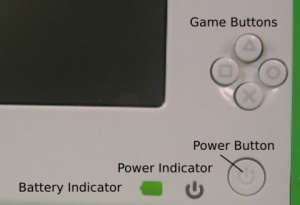Clean-install procedure for 8.2
This page provides parallel instructions for installing both signed builds (official or candidate releases) and unsigned development builds for Friends in Testing.
Note that a clean install will reflash your XO; everything you created will be deleted. See olpc-update for an update mechanism that preserves some data.
What version is available?
You need to identify the "build" to which you want to update your system. The latest stable system software release is
- 13.2.11 || 2020-01-29
Most users should update to that build.
All releases currently available are listed on the Release notes page. Before upgrading to any release, read its release notes carefully.
Other builds
There are later builds in various stages of development, see OS images for more background. These are likely to be unstable and you will probably need to request a developer key to install them.
Official releases and candidate builds
You'll need a USB storage device such as a flash drive, with a capacity of 500 MB or highers. It should be formatted as FAT or FAT32, and only contains one partition. Most ordinary USB flash drives are set up this way, except "U3" flash drives which may not work. Remove U3 with uninstall software from http://www.u3.com/uninstall
- Attach the USB storage device to your local computer.
- Perform a clean (Full, not Quick!) format of the USB storage device.
- Download the OS image (e.g. os767.img) and its signatures file named fs.zip to the USB storage device. These are compressed files, but DO NOT open them — in your browser click the right mouse button over the link and choose "Save Link/Target As...".
- Official OS images can be downloaded from http://download.laptop.org/xo-1/os/official/ (older, well-tested images), http://download.laptop.org/xo-1/os/candidate/ (newer, candidate images).
- Your USB storage device should now contain two files named something like: os767.img and fs.zip.
- Unmount the USB storage device and disconnect it from your computer when it is safe to do so.
- Plug your XO laptop into an electrical outlet.
- Shut down the XO.
- Connect the USB storage device to the XO Laptop and power up while holding all the four game keys. (this is VERY important!)
- Release the game keys when the XO asks you to. The XO will take a few minutes to rewrite its memory with the new OS image.
- Reboot the XO. If the new build includes newer firmware, then your XO will reboot twice. When the XO restarts the update will be complete.
- Check that you have the correct build:
- Follow How to check the OS and firmware versions.
- Verify that the build number matches build number of the image file you downloaded, e.g. "Update.1 708, firmware Q2D16" for en708-1.
- You will then need to install activities.
Development builds
- Get a developer key for your XO laptop and save it in /security/develop.sig on a USB flash drive.
- Read OS images and its table of releases to choose an appropriate build.
- Other OS images can be found at joyride build stream (e.g. joyride-2230) and from many other sources.
- Download the OS image (e.g. Template:Official-img-link) and its CRC file (e.g. Template:Official-crc-link) to your local computer. Important: DO NOT open them. If your computer runs MS Windows, click your right mouse button on the link and choose "Save Link Target As". If you are using a Mac, use Safari for the downloads and hold down the control key when you click on the link and choose "Download linked file as...".
- Copy these files onto of a clean (Full (not Quick!) formatted) USB flash drive. Your USB flash drive should now contain two files named, for example, osos860.img and osos860.crc (and possibly the /security directory).
- Unmount the USB flash drive and disconnect it from your computer when it is safe to do so.
- Shut down your XO laptop. Insert the USB flash drive into the XO Laptop and power up while holding the escape key (the circled 'x' in the upper-left corner of the keyboard).
- Release the 'x' key when it asks you to. You should be at the Open Firmware "ok" prompt.
- Type
probe-usb copy-nand disk:\osNNN.img
- where osNNN.img is the file you downloaded (e.g. os708.img, os2230.img, or en708-1.img).
- 9. Press Enter, then wait while your machine reflashes.
- 10. When the "ok" prompt returns, reboot the machine by typing reboot.
